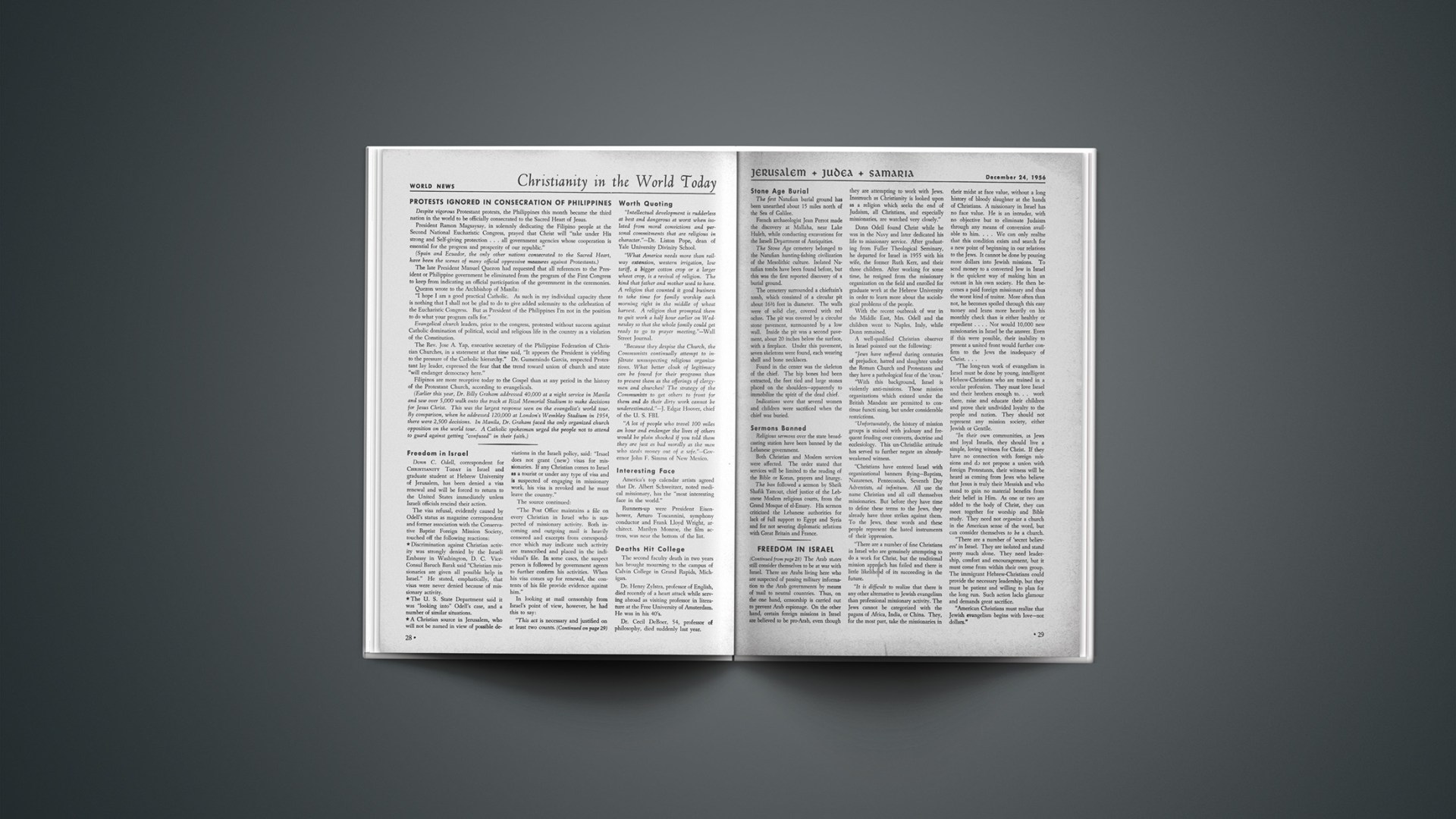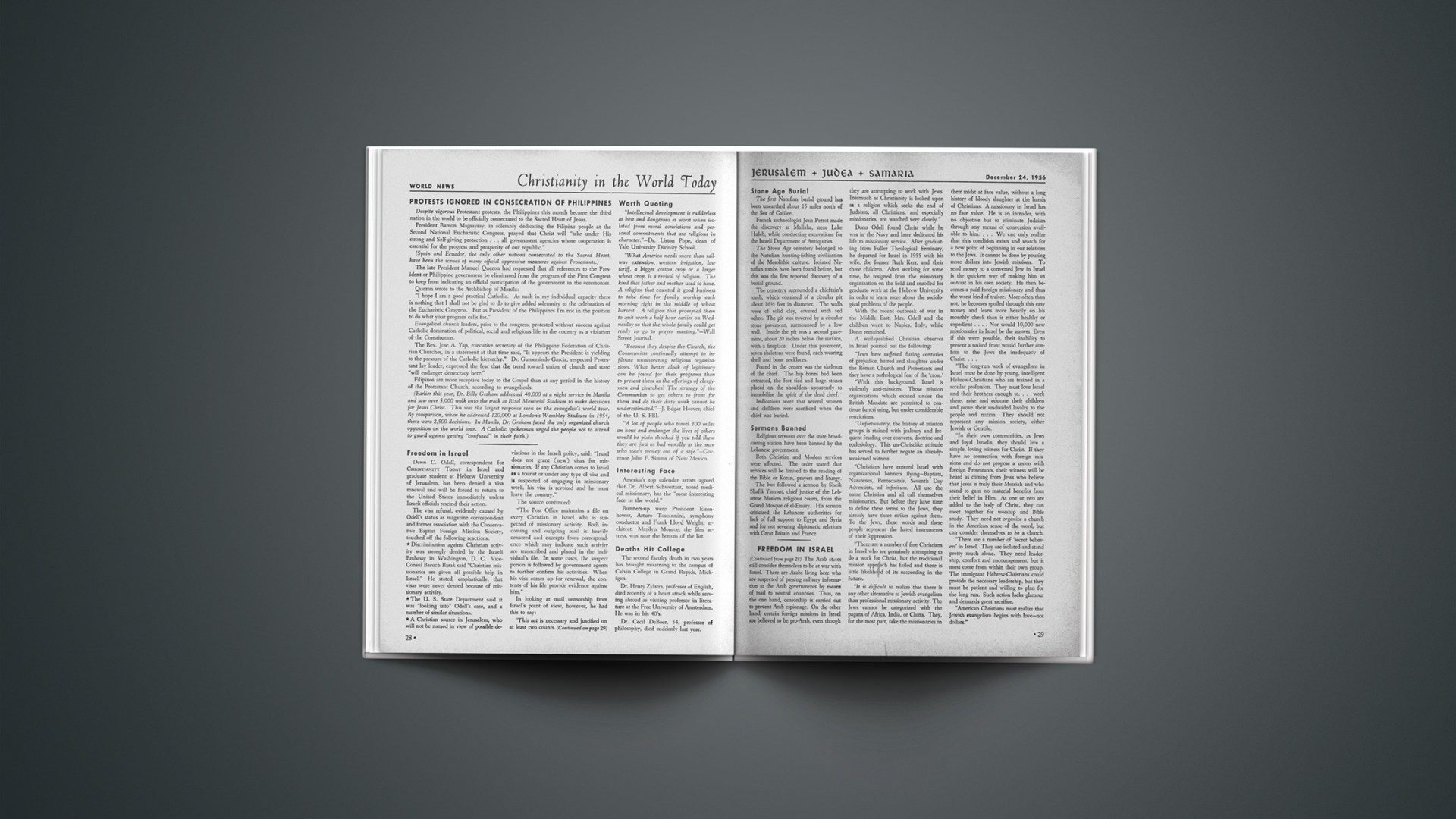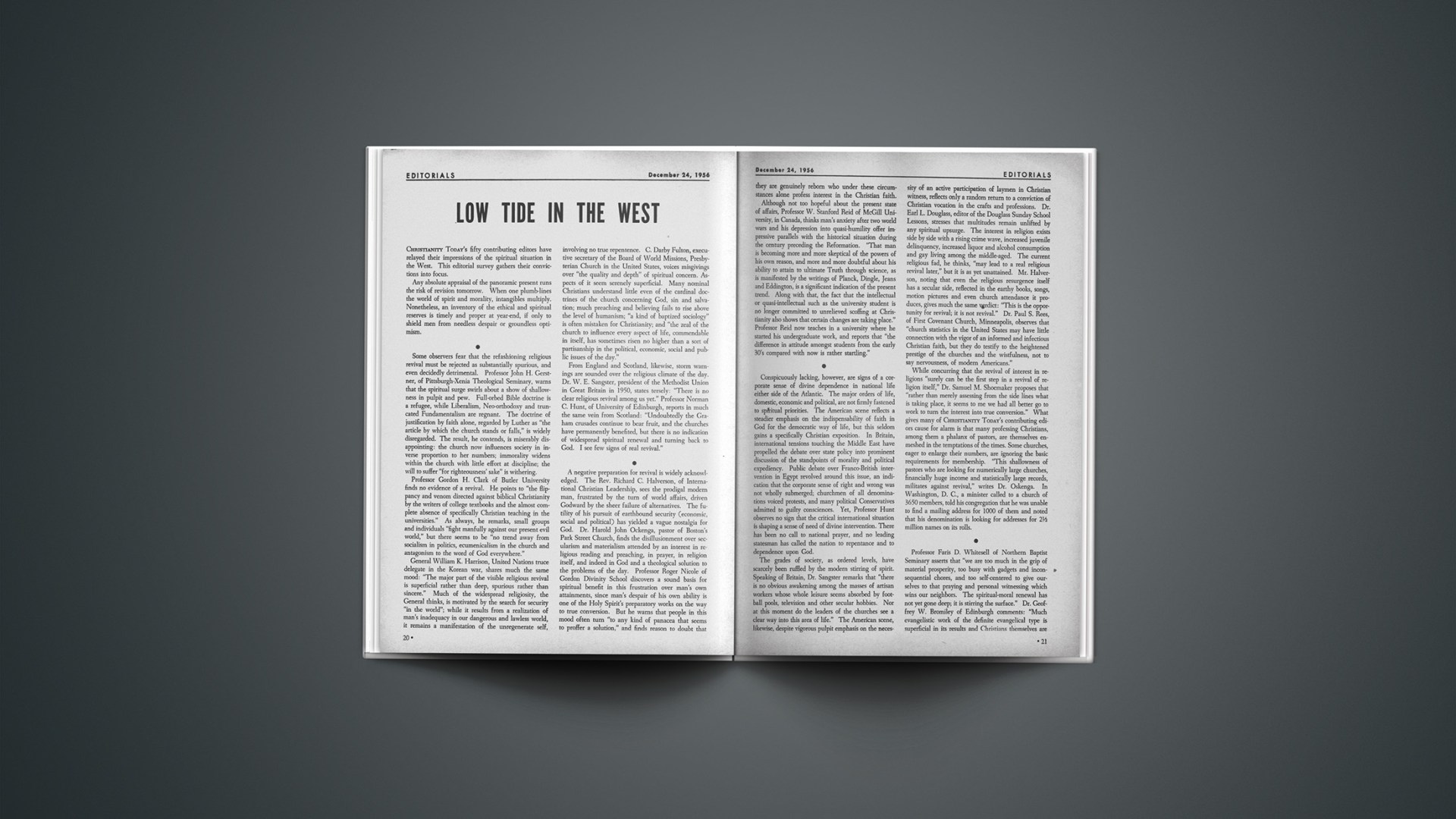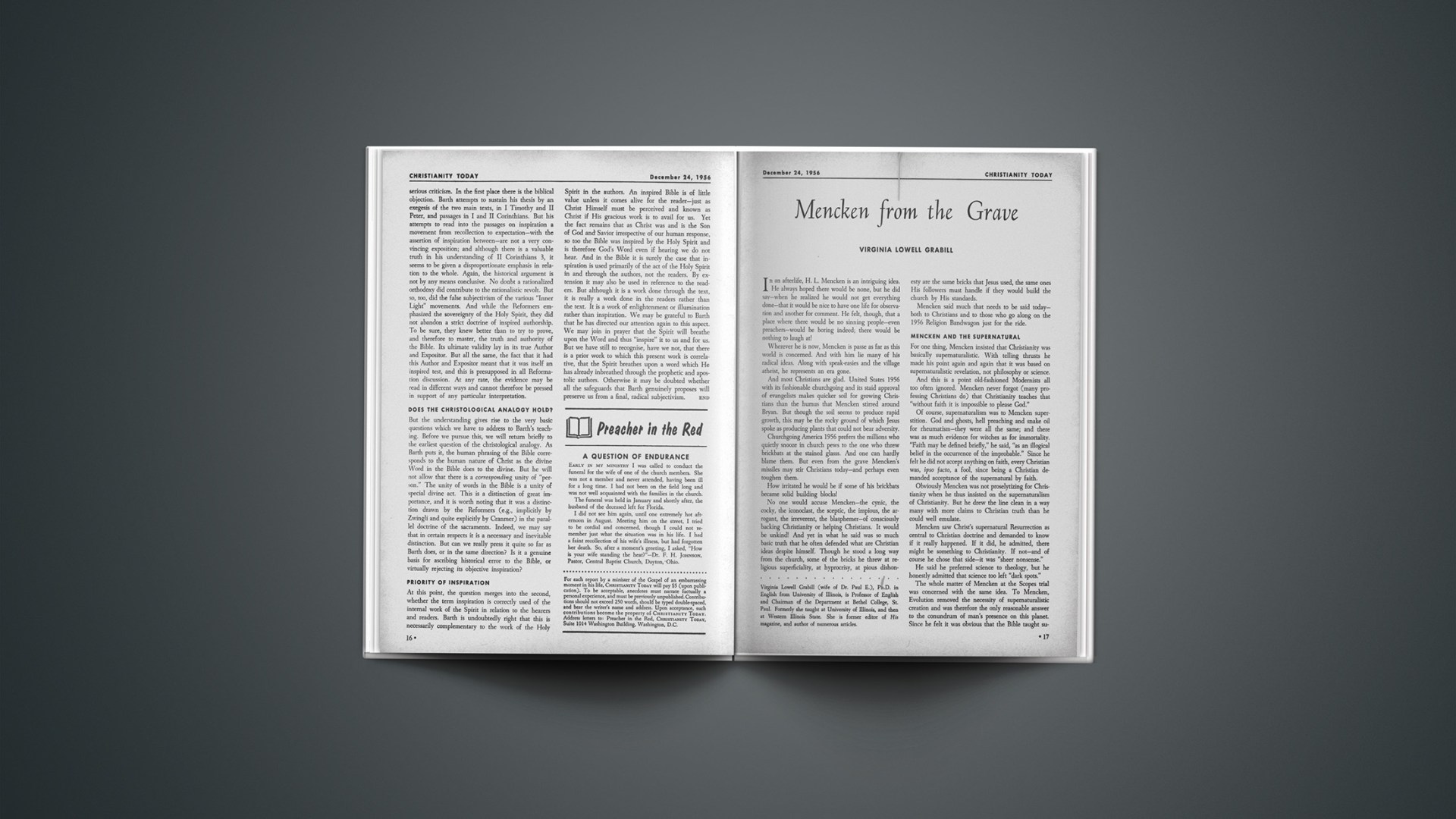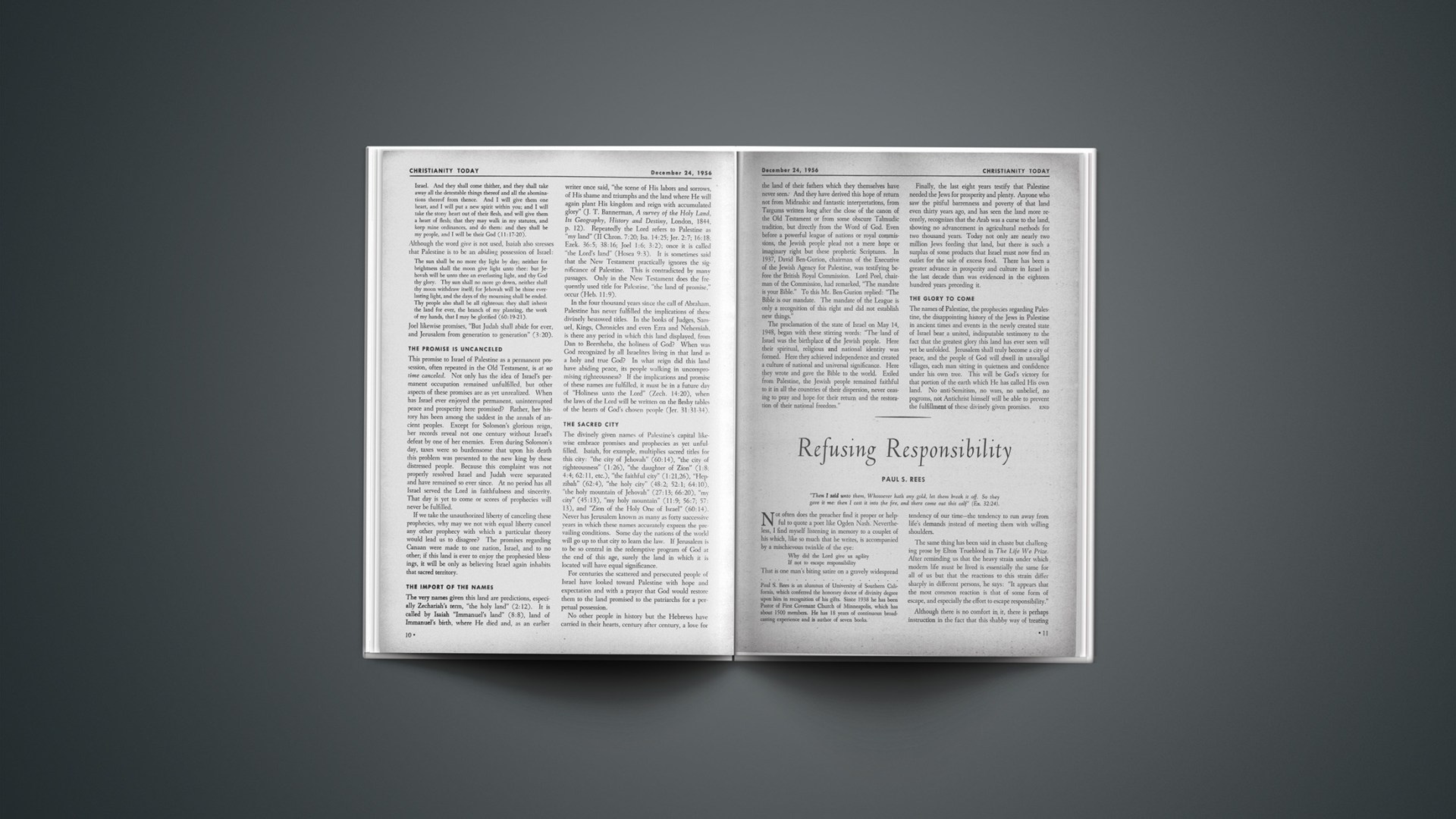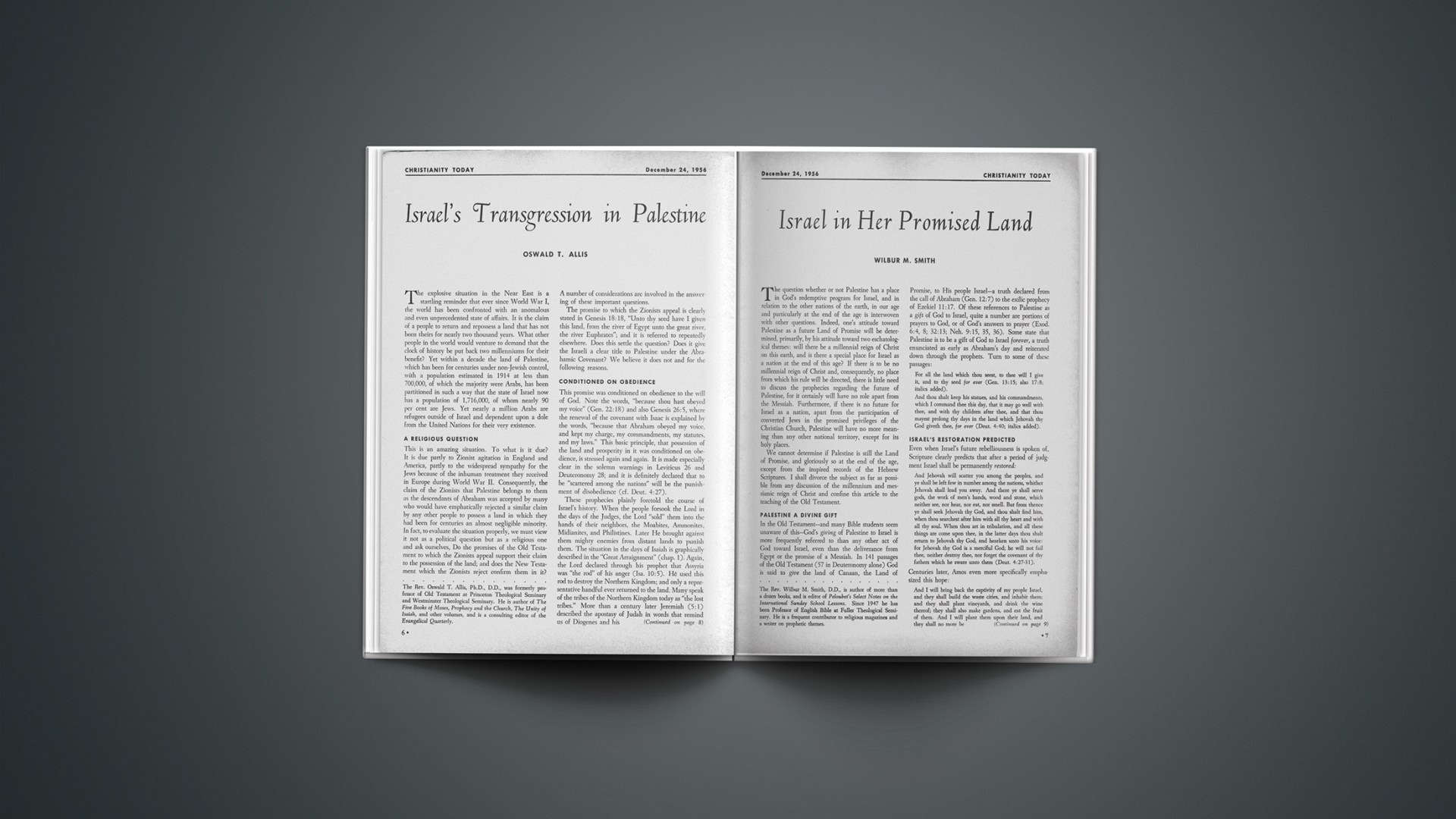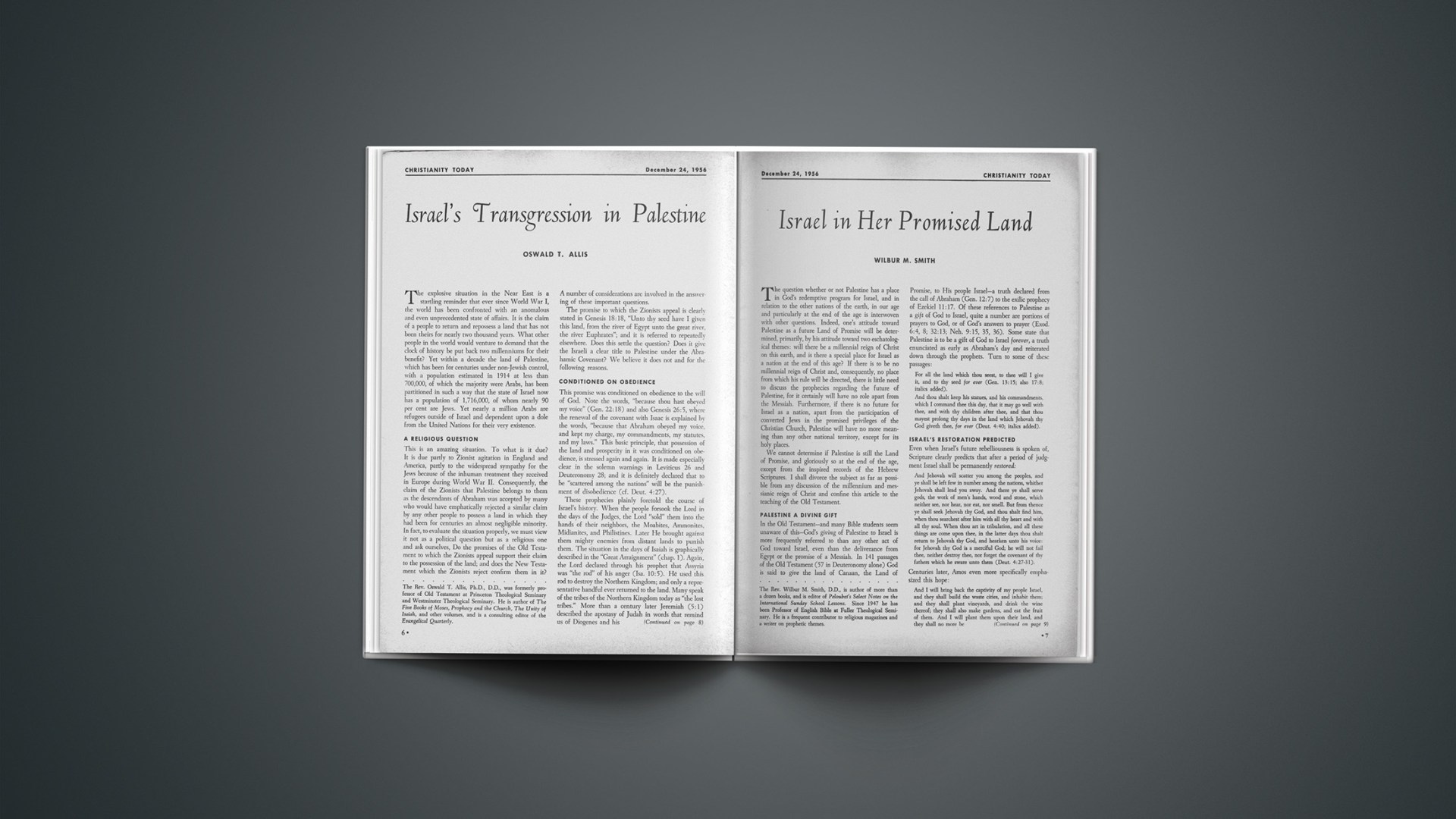Stone Age Burial
The first Natufian burial ground has been unearthed about 15 miles north of the Sea of Galilee.
French archaeologist Jean Perrot made the discovery at Mallaha, near Lake Huleh, while conducting excavations for the Israeli Department of Antiquities.
The Stone Age cemetery belonged to the Natufian hunting-fishing civilization of the Mesolithic culture. Isolated Natufian tombs have been found before, but this was the first reported discovery of a burial ground.
The cemetery surrounded a chieftain’s tomb, which consisted of a circular pit about 16½ feet in diameter. The walls were of solid clay, covered with red ochre. The pit was covered by a circular stone pavement, surmounted by a low wall. Inside the pit was a second pavement, about 20 inches below the surface, with a fireplace. Under this pavement, seven skeletons were found, each wearing shell and bone necklaces.
Found in the center was the skeleton of the chief. The hip bones had been extracted, the feet tied and large stones placed on the shoulders—apparently to immobilize the spirit of the dead chief.
Indications were that several women and children were sacrificed when the chief was buried.
Sermons Banned
Religious sermons over the state broadcasting station have been banned by the Lebanese government.
Both Christian and Moslem services were affected. The order stated that services will be limited to the reading of the Bible or Koran, prayers and liturgy.
The ban followed a sermon by Sheik ShafikYamout, chief justice of the Lebanese Moslem religious courts, from the Grand Mosque of el-Emary. His sermon criticized the Lebanese authorities for lack of full support to Egypt and Syria and for not severing diplomatic relations with Great Britain and France.

